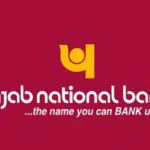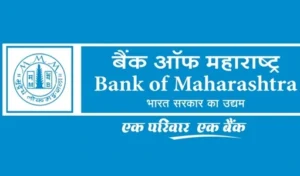A Recurring Deposit (RD) is kinda like a savings hack that financial institutions offer. Imagine that you vouch to save a pre-decided amount of money after fixed intervals of a month in a bank locker or say after every quarter of a year. That’s what a recurring deposit does for you. Now, if that was a fixed deposit (FD), you had to drop a whole bunch of money in one go, whereas an RD works by helping you save gradually.
When you open your RD account, decide how much you will be contributing every month and for how long, and this very tenure could last anywhere from a handful of months to a couple of years. The best part is, that the interest rates remain the same from day one, meaning you know exactly what you get for your money. However, interest is usually calculated quarterly, which means your money grows faster than you might expect. At the end of the tenure, you get back your total savings plus the interest you calculated towards the beginning. Now let’s understand the benefits and drawbacks of opening a RD Account:

Advantages of Recurring Deposit (RD) Accounts
1. Savings on Autopilot
A recurring deposit account is more like set-it and forget-it type. How? Well, you set up your RD by agreeing to put a set amount aside every month for a certain amount of time, which helps you build a regular savings habit over time. Then you can set your savings on autopilot and put your mind at ease: part of your paycheck will always be securely tucked away.
2. Better Interest Rates Than Your Regular Savings Account
The sad truth about a normal savings account is that, while it is convenient, it doesn’t even help your money grow at a decent pace. On the other hand, the interest rates for RD accounts are often as high as, if not higher than, those for a fixed deposit, with the only difference being that your interest is usually compounded quarterly.
3. Flexible Tenure Options
With the RD accounts, you also have the flexibility to pick a tenure period that would be in line with your savings goal: if you want to make money to go on that once-in-a-lifetime holiday in six months’ time, you can pick a short tenure of, say, six months, while you can save up for your retirement fund over a longer term of up to 10 years or even 20 years.
4. Guaranteed Returns, No Surprises!
You know, essentially, with recurring deposit accounts, what you see is what you get. The interest rate not changing is good. It reduces risk. You kind of know what the market’s going to do, and it’s going to do just fine whatever the market does. This way, you do precise financial planning, and you can budget things, knowing exactly how much you’ll have at the end.
5. Start Small, Dream Big
With starting contributions as low as ₹100, you don’t need to be a millionaire to get started on an RD. Many banks let you open an RD account with that amount, even if it’s a systematic monthly investment of just ₹100. The low initial investment makes RDs appealing to a broad category of people with varying backgrounds: students, young working professionals, people with irregular incomes, etc.
6. Emergency? No Problem!
Life is hard, for sure, and there could be times when you are in immediate need of money, and a recurring deposit account is no hurdle in that. How? If you do require funds for any purpose, RDs have your back. You can borrow against your RD instead of breaking it, prematurely.
7. Tax Benefits
Some RD schemes come with tax benefits, potentially offering deductions on the interest earned, which sounds like the cherry on top, right? Well, this can very well mean extra savings come tax season. Though, before you make any decision based on tax benefits, we’d advise you to consult it with some professional first, you know, just to be sure.
Disadvantages of Recurring Deposit (RD) Accounts
1. Lower Interest Rates Compared to Other Investments
Yes, RDs pay higher interest than savings accounts, but they’re usually not as generous as mutual funds, stocks, or other riskier investments. RDs are low-risk, which means they don’t offer the high returns you might get from riskier options. If significant growth is on your radar, albeit with a little more risk, RDs may not be the best way to go.
2. Not So Liquid
Perhaps the biggest disadvantage of RDs is poor liquidity. Once your money goes into it, you have to leave it in there for that period of time. A few banks might allow you to pull out a portion of it, but you will have to pay a penalty or have a reduced interest rate. This can be very inconvenient if you need to access your money before the maturity period.
3. Monthly Deposit Pressure
RDs require you to put a set amount of money away every month, if you fall behind on a payment or two, the consequences for your return could backfire, and failure to meet your minimum means there’s no tax advantage. People who have irregular pay cycles or unexpected expenses to pay might struggle with the need for these strict payment schedules.
4. Inflation Risk
Since RD interest rates are fixed, even though the RD protects you against the risk of the interest rate dropping, it doesn’t necessarily protect you from the risk that inflation rates may rise in the future. After the first year, the real value (in terms of what your savings can buy you) of your real returns to inflation may decrease, even though you earn interest. Thus, during periods of high inflation, the RD will lose its appeal over a longer period.
Quick Comparison Between Advantages and Disadvantages of RD Account
| Advantages | Disadvantages |
| Automatic savings setup | Lower returns compared to riskier investments |
| Higher interest rates than savings accounts | Limited liquidity and potential penalties for early withdrawal |
| Flexible terms to match savings goals | Monthly deposit requirements can be burdensome |
| Guaranteed returns for reliable planning | Fixed interest rates vulnerable to inflation |
| Low initial deposit requirement | Lower tax advantages if minimum payments are missed |
| Option to borrow against the deposit | |
| Possible tax benefits |



















